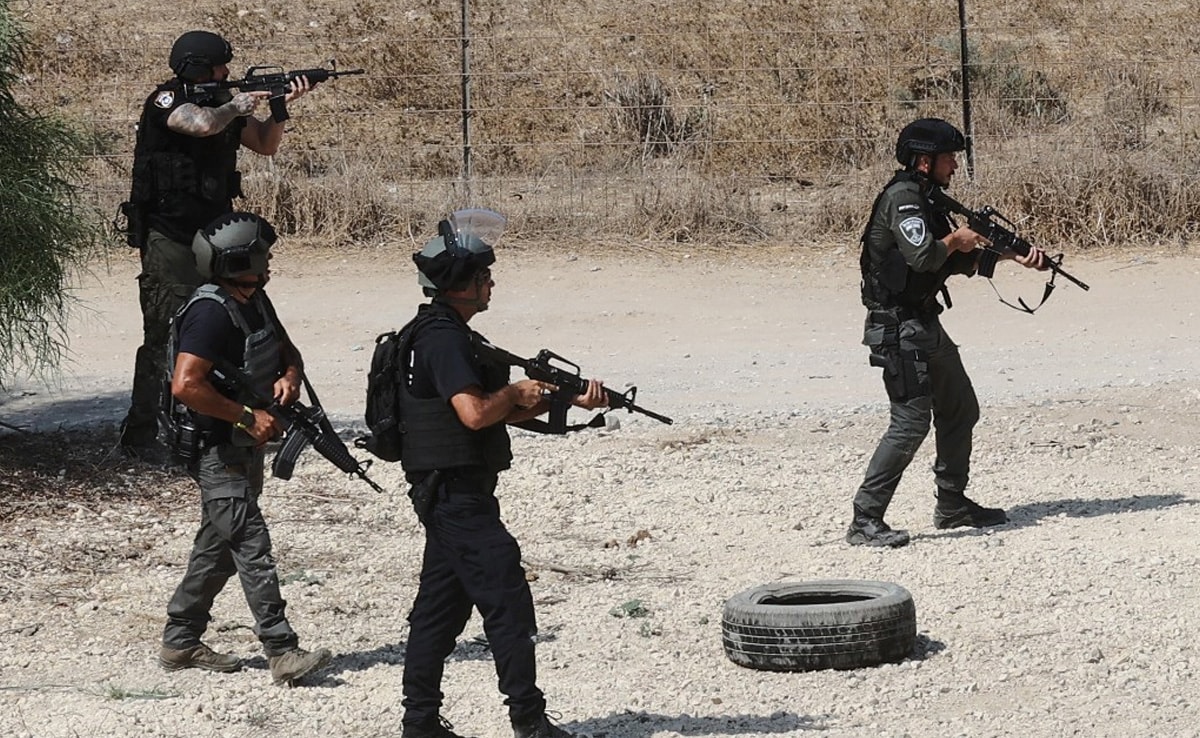
Israeli forces battle holdout Hamas group (AFP)
New Delhi:
The Hamas group’s biggest ever attack on Israel has led to a war, with Israel sending a massive counterattack force towards the Gaza Strip, one of the most densely populated places in the world.
Behind the current hostilities, however, there have been strong efforts at bringing peace and settling the land issue between Israel and Palestine.
Saudi Arabia-Brokered Peace Talks
On September 26, Saudi Arabia’s first ambassador to the Palestinians described a decades-old Arab land-for-peace offer as a pillar of any normalisation of ties with Israel, an apparent attempt to signal that Riyadh has not abandoned the Palestinian cause. Saudi Arabia’s non-resident ambassador to the Palestinians – a role it unveiled in August – made a first visit to their seat of government in the occupied West Bank on September 26, presenting credentials also designating him “consul-general in Jerusalem”.
That title is touchy as Israel considers all of Jerusalem its own capital and rejects the Palestinians’ claim on East Jerusalem as capital of their hoped-for future state, news agency Reuters reported. The ambassador, Nayef Al-Sudairi, referring to the prospect of normalisation with Israel, said: “It is the normal thing among nations to have peace and stability.”

“The Arab initiative, which Saudi Arabia presented in 2002, is a fundamental pillar of any upcoming agreement,” he added. That referred to a proposal aired by Riyadh and later adopted by Arab states widely, under which Israel would get pan-Arab recognition only if it quit territories captured in a 1967 war, including lands where the Palestinians want their state. Israel has been keen to pursue more peace deals with Arab states without giving up land, having won normalisation from the United Arab Emirates and Bahrain, and upgraded ties with Morocco and Sudan, in 2020 despite talks with the Palestinians having been frozen for years.
Oslo Accords
Across the occupied West Bank, concrete checkpoints, separation walls and soldiers are reminders of the failure to build peace between Israelis and Palestinians since the historic Oslo Accords were signed 30 years ago.
The accord, intended as a temporary measure to build confidence and create space for a permanent peace agreement, has long since frozen into a system for managing a conflict with no apparent end in sight.
With the West Bank in turmoil, a nationalist government in Israel that dismisses any prospect of Palestinian statehood, and the Islamist movement Hamas flexing its muscles outside its home in Gaza, prospects for peace appear as distant as they ever have been.
Once the 87-year-old Palestinian President Mahmoud Abbas departs, a void will be left that may bring the crisis to a head.
“We are at the end of an era both in Palestine and Israel and probably in the region as a whole,” said Hanan Ashrawi, a civil activist and former spokesperson for the Palestinian delegation to the peace process in the 1990s, told Reuters on September 13.

With barriers keeping the two sides apart in the West Bank, largely under Israeli military control, young Israelis and Palestinians have grown up knowing little of each other since the first agreement was signed on Sept. 13, 1993.
“Oslo and I were born the same year,” Mohannad Qafesha, a legal activist in the southern city of Hebron, told Reuters. “To me, I was born and there were checkpoints around me, around our house, if I leave home and go to the city to visit my friends, I would have to cross a checkpoint.”
UN General Assembly
Colombian President Gustavo Petro used his speech to the United Nations General Assembly on September 19 to call for peace summits to resolve conflicts in Ukraine and between Israel and the Palestinians, so humankind can focus instead on addressing climate change.
Mr Petro, Colombia’s first leftist leader, is seeking peace and surrender deals in his own country with rebel groups and crime gangs to end a six-decade conflict which has killed at least 450,000 people.
“I propose ending war so we have the time to save ourselves. I propose the United Nations sponsor as soon as possible two peace conferences. One on Ukraine, the other on Palestine, not because there are not other wars in the world, like in my country, but because it would show how to make peace in all the regions of the world,” Mr Petro, 63, said.
With inputs from Reuters




